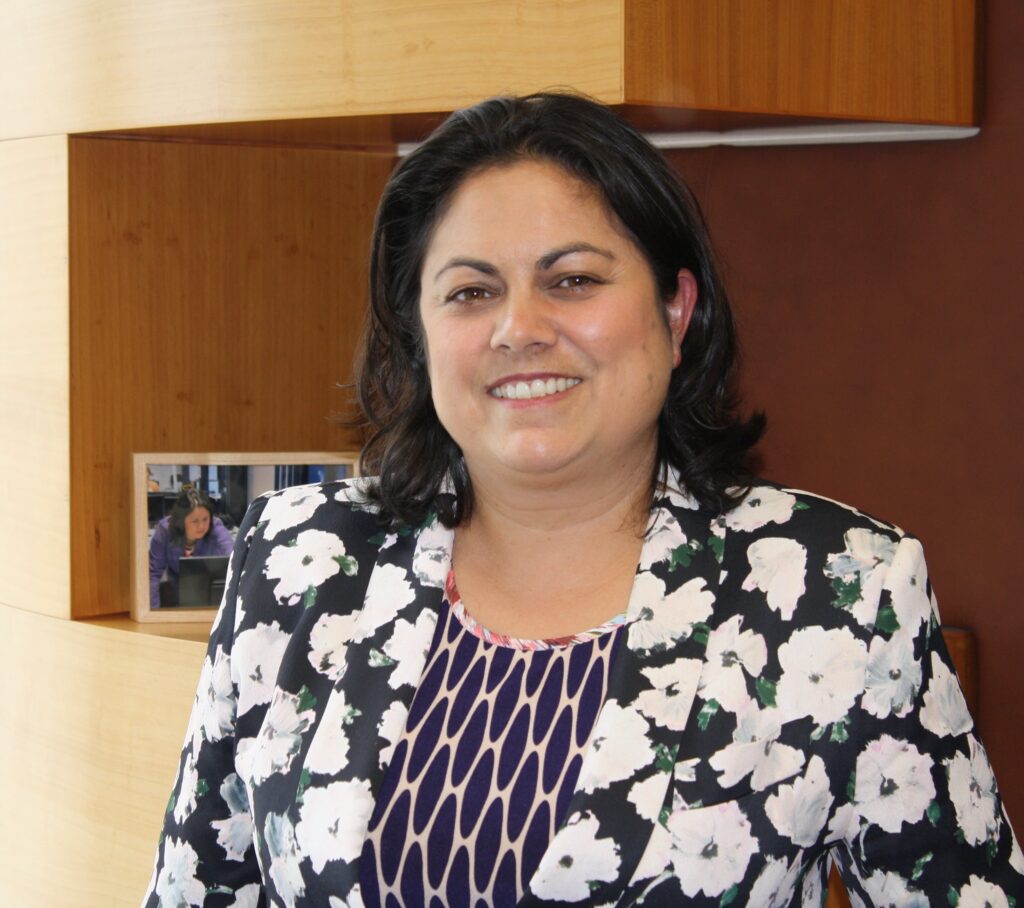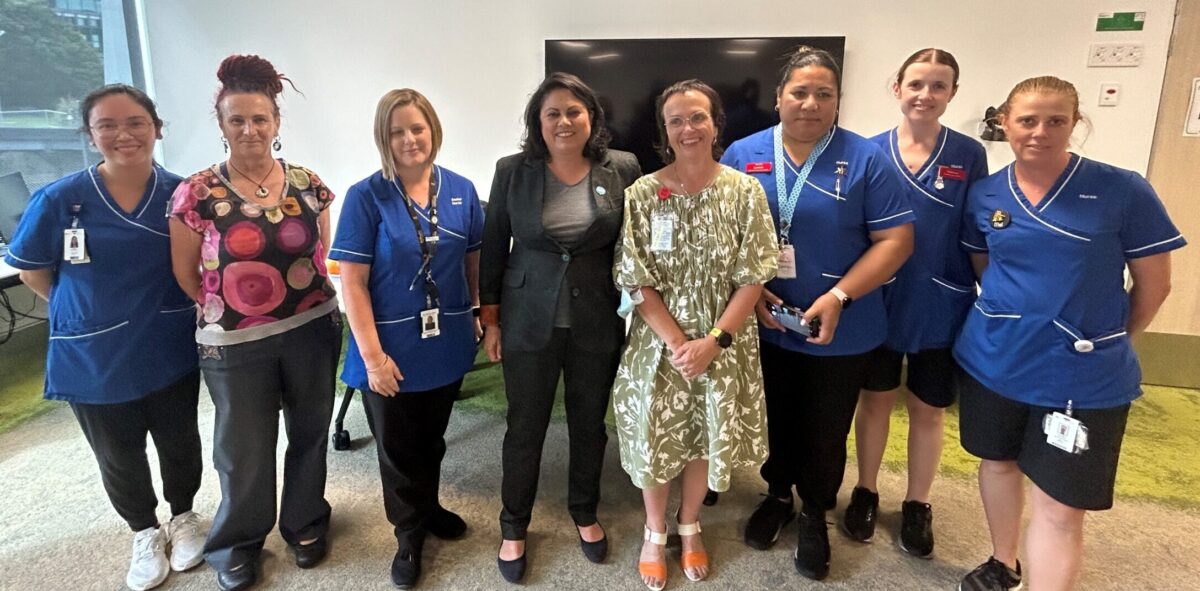Verrall paid a visit to nurses at Wellington’s new regional children’s hospital today to mark the completion of $500 million in interim equity payments to Te Whatu Ora nurses.
‘. . . I did make a point of saying that we are wanting our back pay to 2019 and we deserve it and we’ve earnt it’.
“A large proportion” of registered nurses (RNs) would receive an extra $12,000 per annum in base pay — a 14 per cent increase, Verrall said in a statement. “After years of falling behind, these payments recognise the significance and importance of a group that has been historically undervalued based on gender.”
NZNO delegate Mel Anderson said nurses “appreciate” the payments. “But I did make a point of saying that we are wanting our back pay to 2019 and we deserve it and we’ve earnt it.”
The interim equity payment included a $3000 lump sum to acknowledge back pay sought in 2020.
Senior nurses’ pay
Anderson also raised with Verrall the pay scale for senior nurses — who now get paid the same or even less than a level 7 RN after a 14 per cent increase for RNs. “As a step 7 RN, I get my PDRD [professional development and recognition programmes] money and penals — we’re taking home more than our senior nurses now,” Anderson said.
‘Aged care residential homes are closing down, and we’ve got people sitting in the hospital for up to 3-4 months waiting for beds — then that blocks the beds for ED.’
“I explained what would happen if we don’t have those senior nurses around to help — we end up with more people in hospital.”
Anderson said she also urged the minister to resolve pay for aged care staff, to deal with “bed blocking” caused by elderly patients with nowhere to go.
“Aged care residential homes are closing down, and we’ve got people sitting in the hospital for up to three to four months waiting for beds — then that blocks the beds for ED and ED gets overflowed,” Anderson said.
Staffing conditions
She also said better workplace conditions — by alleviating staffing pressures — were needed as well as pay. Wellington’s ED recently, for example, dealt with 106 patients over one afternoon when it was only resourced for 36 — and it wasn’t even winter yet.
“You could give us $200 an hour but the conditions could be terrible and people are still going to walk away,” said Anderson, a paediatric nurse. “I kind of took over the meeting.”
Recognising nurses’ post-graduate study with higher pay would also be appreciated, as was the case in Australia, she said. “It’s only a $1 [per hour more], it’s not much but it’s recognition you have actually done some higher learning to have a better knowledge of something . . . and not just be a nurse that never wants to learn or expand themselves.”
‘You could give us $200 an hour but the conditions could be terrible and people are still going to walk away.’
‘Historic’ pay bump
Verrall said that with the completion of $500 million in interim equity payments today, nurses had received a “historic bump in pay” and “much-deserved pay boost”.
“This Government said it would deliver pay equity for nurses and I’m delighted to be able to acknowledge this,” said Verrall, an infectious disease specialist doctor who has worked as a registrar at Wellington Hospital.
“These payments have now increased wages for our largest group of registered nurses by a total of about 25 per cent since we came into government in 2017,” Verrall said. NZNO has estimated about 36,000 Te Whatu Ora members would be affected.

New Zealand nurses’ salaries were now “competitive with Australia,” Verrall said.
However, she also acknowledged the ongoing litigation in the Employment Relations Authority (ERA) to determine final pay equity rates.
NZNO members voted last year to take the pay equity rates dispute to the ERA and made a claim for back pay to December 2019 in the Employment Court.
However, the ERA late last year agreed Te Whatu Ora could make interim equity payments — based on its original offer — while it continued to hear the case.
“This means nurses are able to have that extra money in their pockets right now,” said Verrall. “I continue to urge the parties to resolve the outstanding issues by agreement.”
The Government had also committed $200 million per year to raise the pay of nurses in aged care, hospices and Māori and Pacific providers from April this year, she said.
Verrall acknowledged there was a “way to go yet”. But, she said, on International Women’s Day “in a female-dominated workforce, I’m absolutely delighted to be able to share this moment with our nurses”.
Rates
- Newly qualified registered nurses will start work in a public hospital on $66,570 a year before overtime and allowances, and experienced nurses will be on a basic pay rate of up to $95,340 before overtime and allowances.
- Newly qualified RNs in 2017 started work on $49,449 a year before overtime and allowances. Experienced RNs in 2017 were on a basic pay rate of up to $66,755.
- See more here:





